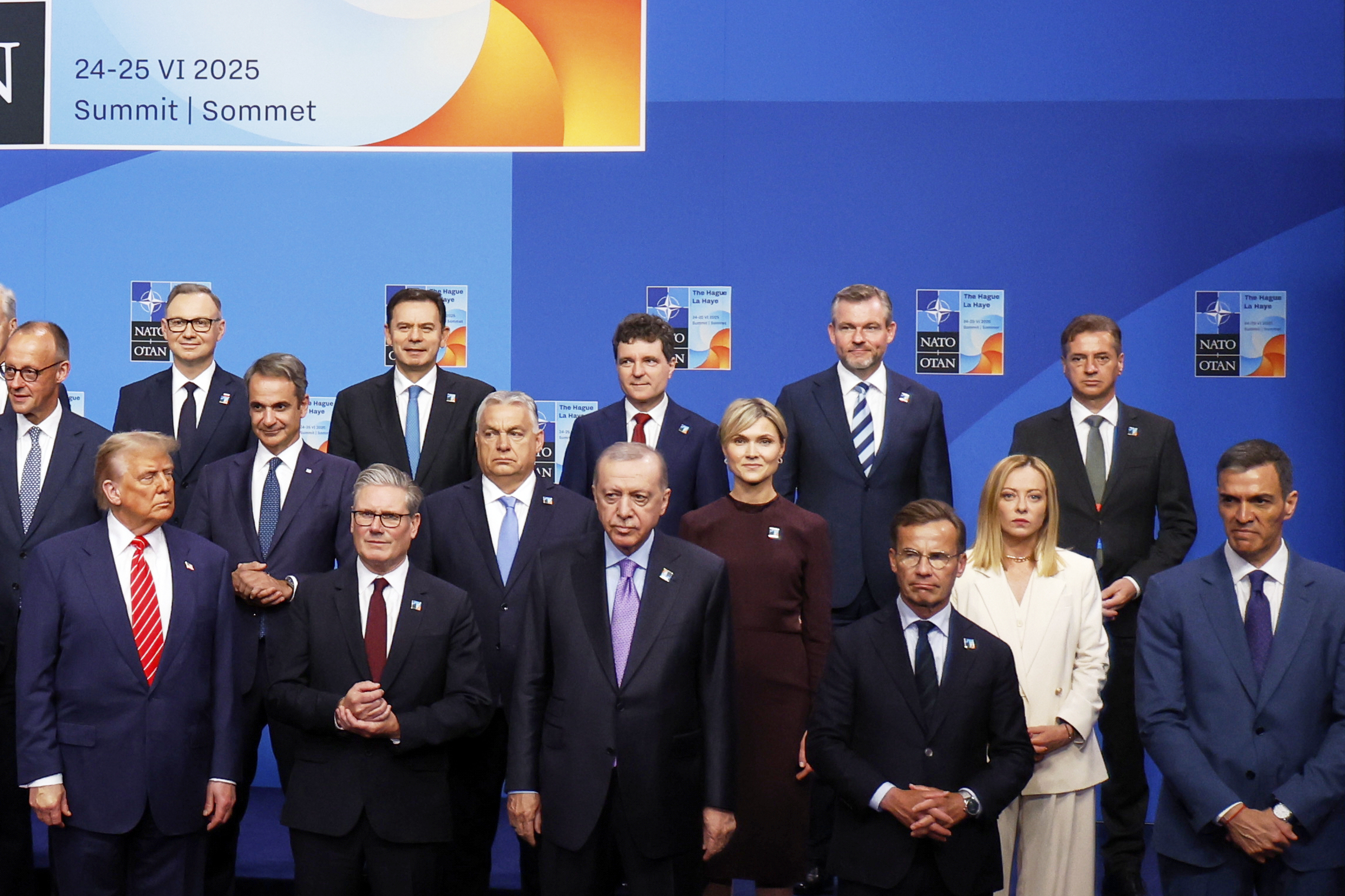With the political presentation for domestic consumption that Pedro Sánchez has made of his commitments with NATO, he unleashes a double economic problem: one, immediate with the world's leading power, the United States; and another, with the Atlantic Alliance in 2029 "at the latest". It all stems from the fact that Sánchez wanted to showcase the flexibility granted by NATO in its statement as if it were something exclusive to Spain, triggering the anger of important partners, particularly that of the US President, Donald Trump, despite his own intention to take advantage of that leniency in the agreement.
Trump's gunslinger tone, unusual among allies, may not translate into specific tariffs for Spain, but rather into his Administration attempting to have Spanish products particularly penalized in a potential trade war with the European Union. And above all, Trump points to Spain as an unreliable partner, which could have a ripple effect on American multinationals that may choose other European countries like Italy for investments in the EU or Pentagon contracts. The world's leading economic power has the means to carry out Trump's tremendous statement, reminiscent of a novel by Mario Puzo: "The Spanish economy is doing very well and could collapse suddenly if something bad were to happen, you know."
All because Sánchez boasts that Spain will only spend 2.1% on defense in the next decade, when it could be more. And here comes the second problem, but in this case for whoever is in Moncloa in 2029. In that year, as the Secretary-General of the Alliance, Mark Rutte, reminded, there will be a thorough evaluation of whether allied governments are meeting the promised military capabilities objectives with their spending. Sánchez is convinced that with 2.1%, Spain will reach that year with the necessary armament and equipment purchases made, but if, as Rutte suspects, it falls short, 2029 will be the moment when the Alliance demands that Spain increase its effort to fulfill its promise. If Rutte is right, whoever governs in Moncloa that year will not only have to allocate around 33,000 million a year to defense, but around 56,000 with the blow of deficit and debt.
Trump does not delve into these subtleties, but German Chancellor, Friedrich Merz, does. It went more unnoticed, but at the end of the summit, he said, "By 2029 at the latest, there will be a review to see if Spain can meet its commitment with less financial effort." The Minister of Economy, Carlos Cuerpo,, stated on National Radio that if it were necessary to allocate more money, "Spain will rise to the occasion." This refers to the recent exchange of letters with Rutte in which Sánchez binds his successors by committing Spain to acquire the agreed-upon capabilities even if they exceed 2.1%.
Therefore, there is no sign of a supposed Spanish escape clause in point three of the final allied declaration. With the yes of the current Spanish coalition government, what is stated there is a historic leap by the Alliance in military spending. From 2% of the national GDP to "at least 3.5% of GDP, based on the agreed definition of NATO defense spending by 2035, to fund basic defense needs and meet NATO Capacity Objectives." And to that, another 1.5%, still unspecified, for security, must be added.
Can the leader of the PSOE argue that thanks to his efforts, Spain saves an extra short-term effort? No, judging by the reaction, for example, of another indebted ally who also claims to have the same autonomous path to reach the objectives. Without the fanfare of Sánchez, Italian Prime Minister, Giorgia Meloni, somewhat mockingly stated that Sánchez had signed "the same" as her, which is satisfactory: "I am convinced that the new objectives are sustainable, there is total flexibility."
For now, but the leader of the PSOE also accepted, like the rest, this: "The trajectory and balance of spending in this plan will be reviewed in 2029." Would he have signed it if he were convinced that he would still be in Moncloa that year?
